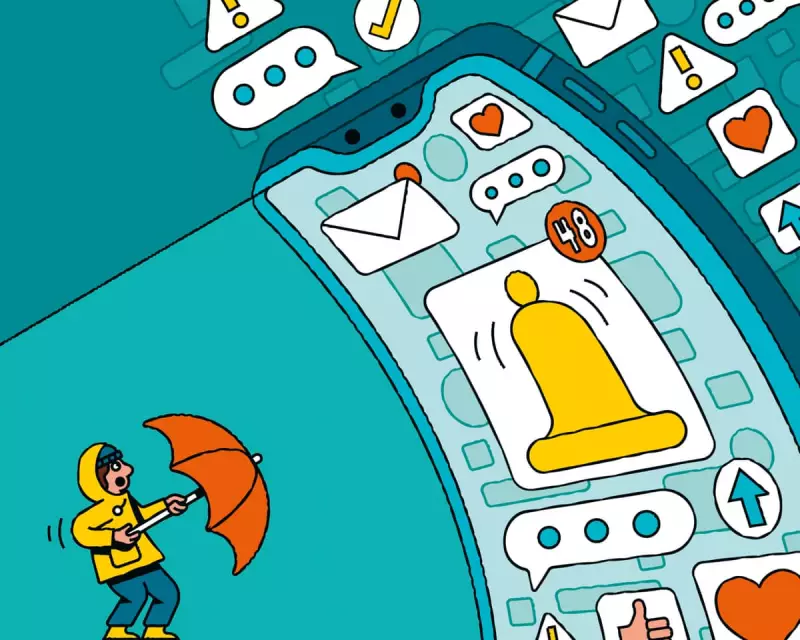
We are living through what author Naomi Alderman identifies as the third great information crisis in human history - an era defined by digital communications technology that's changing us psychologically and socially in irreversible ways.
The Historical Pattern of Information Crises
According to Alderman, this represents the third major information crisis humanity has faced, following the invention of writing and the Gutenberg printing press. Each previous crisis brought enormous leaps in knowledge alongside intense instability.
The print revolution led to both the Enlightenment and the violent Reformation period, where doctrinal disputes resulted in people being burned at the stake. Alderman uses this historical metaphor to describe how we today treat living people as symbols in online arguments, acting against our core values in the heat of debate.
Why We Feel Overwhelmed and Angry
The current digital information crisis leaves us feeling anxious and angry because we're constantly exposed to everything we don't know. We encounter opinions that challenge our worldview from people we thought we understood, creating what Alderman calls the "I used to like Uncle Bob until I saw his posts on Facebook" syndrome.
This emotional destabilisation mirrors how Reformation Europeans might have felt discovering their neighbours held fundamentally different religious beliefs. The sheer volume of available information overwhelms our existing social and informational structures.
Twelve Practical Survival Strategies
1. Find Trusted Fact-Checkers
Unlike people living through earlier information revolutions, we have robust fact-checking services like the BBC's verification unit, Snopes, and PolitiFact. Fact-checking has become a specialised skill essential for navigating today's information landscape.
2. Notice Your Emotional State Before Sharing
Alderman suggests using strong emotional reactions as cues to slow down and verify information. Whether feeling gleeful about political content or horrified by shocking claims, intense emotions should trigger fact-checking rather than immediate sharing.
3. Resist Public Shaming
When encountering someone sharing false information, avoid public embarrassment. Instead, send a private message approaching them as an ally. This preserves relationships and acknowledges that everyone will eventually share something inaccurate.
4. Give Institutions the Benefit of the Doubt
Truth-seeking organisations will inevitably make mistakes. Look for institutions that acknowledge errors quickly, focus on systemic improvements rather than blaming individuals, and demonstrate curiosity about how mistakes occurred.
5. Avoid Hate Reading
The internet enables us to seek out opinions that either perfectly align with our views or outrage us. Hate reading becomes a form of self-validation that destroys shared reality and makes it easier to dehumanise those who disagree with us.
6. Recognise Shared Humanity
Treat people as individuals rather than symbols of opposing viewpoints. Most people who disagree with us are careful, thoughtful individuals with reasonable perspectives, even if we initially perceive them as "cretinous, vicious imbeciles."
7. Value Emotions Over Unexpert Opinions
Alderman recommends taking everyone's emotions seriously while treating few people's opinions as important, unless they're genuine experts in their field.
8. Use Smartphones Judiciously
Since smartphones aren't designed with wellbeing in mind, we must impose our own limits. Consider disabling certain apps in the evening or establishing phone-free hours.
9. Limit Social Media Exposure
Social media platforms should ideally allow easy whitelisting of preferred content types and accounts. Since they don't, we must consciously manage our exposure to preserve relationships and mental health.
10. Don't Completely Isolate Children
Current digital protections create a cliff-edge experience for children transitioning to full internet access. We need graduated approaches that allow parents to introduce age-appropriate content gradually.
11. Campaign for Better Digital Laws
We need legislation that puts users in control of their digital experiences, ensuring smartphones and social media protect rather than undermine our wellbeing.
12. Avoid Pointless Arguments
Alderman keeps herself honest with the reminder that "not getting into pointless arguments on the internet is an act of revolution." She recommends avoiding culture-war discussions with people who only want to debate that single topic.
The Ultimate Principle
The fundamental rule for surviving our information crisis is simple: don't burn anyone at the stake today. Don't trawl through decades of social media posts to find someone's worst statement. Don't try to get people fired over disagreements. Don't let the worst behaviour of "the other side" become the new standard for your own conduct.
As Alderman concludes in her book Don't Burn Anyone at the Stake Today (and Other Lessons from History About Living Through an Information Crisis), we must remember that reasonable people can disagree while both sides contain useful truths worth considering.





